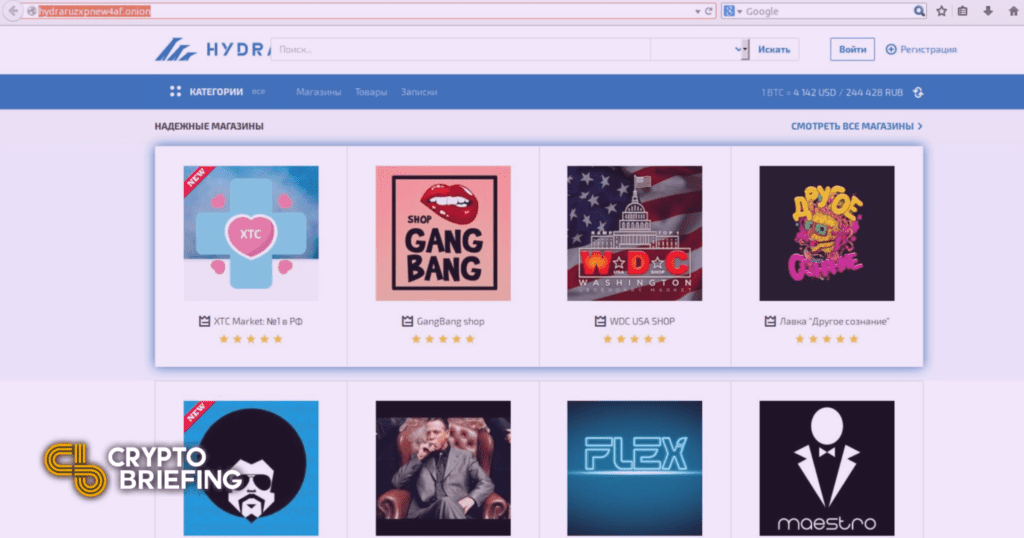
Photo: Hydra Market
Germany Seizes $25M in Bitcoin in Darknet Marketplace Bust
German prosecutors said that Hydra Market was likely the largest illegal darknet marketplace worldwide, churning at least $1.35 billion in sales in 2020.
German police have shut down the servers of the world’s largest illegal darknet marketplace, Hydra Market. Authorities seized over $25 million worth of Bitcoin in the shutdown.
Germany Shuts Down Hydra Market
German authorities have seized the Russian darknet marketplace, Hydra Market.
Frankfurt prosecutors revealed Tuesday that the federal criminal police (BKA) and cybercrime (ZIT) agencies had seized the server infrastructure of the illicit drug marketplace Hydra Market and confiscated around $25 million worth of Bitcoin. According to the announcement of the seizure, the suspects are being investigated for commercially operating criminal trading platforms on the Internet, procurement of and facilitating online illicit drug dealings, and money laundering.
Hydra focused mainly on illegal drugs and was “probably the illegal marketplace with the highest turnover worldwide,” the prosecutor’s statement said. According to BKA and ZIT estimates, it had over 17 million customers and 19,000 registered sellers and recorded at least $1.35 billion in sales in 2020 alone. Despite the massive revenue, however, the German police were only able to seize 543 Bitcoin worth around $25 million at current prices due to the “Bitcoin Bank Mixer,” a proprietary mixing service for obfuscating Bitcoin transactions provided by the platform.
Launched in 2015, Hydra became the region’s largest illicit darknet marketplace in just over two years of operation through fierce anti-competition practices. Unlike its predecessor, the international darknet marketplace Silk Road, it served customers exclusively from former Soviet countries and operated using random location package drops rather than postal deliveries. Drug vendors on Hydra would create so-called “treasures” or packages of illicit goods either buried, magnetized to an object, or otherwise hidden in inconspicuous locations and then send the coordinates of the treasures to buyers. Sellers would never meet their buyers, and all payments would be conducted using Bitcoin run through the platform’s mixing service.
Bitcoin first gained mainstream attention as the digital currency of choice on the now-defunct illicit darknet marketplace Silk Road. As it was still a nascent technology until the FBI seized Silk Road in 2013, Bitcoin was widely considered a private payments network that allowed for confidential transactions. However, all Bitcoin transactions are recorded on a public ledger and available for anyone to see and analyze. Since Silk Road’s downfall, many private firms and government agencies have built specialized software tools to track and monitor Bitcoin transactions, making the asset’s lack of fungibility evermore problematic for criminals.
